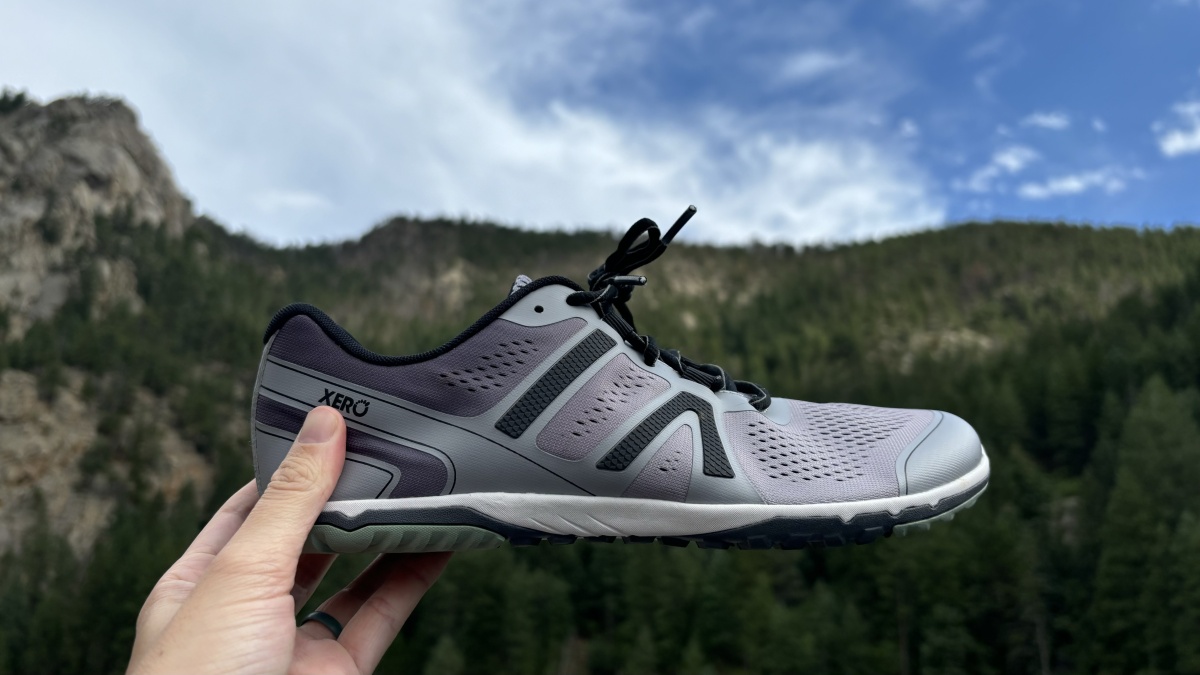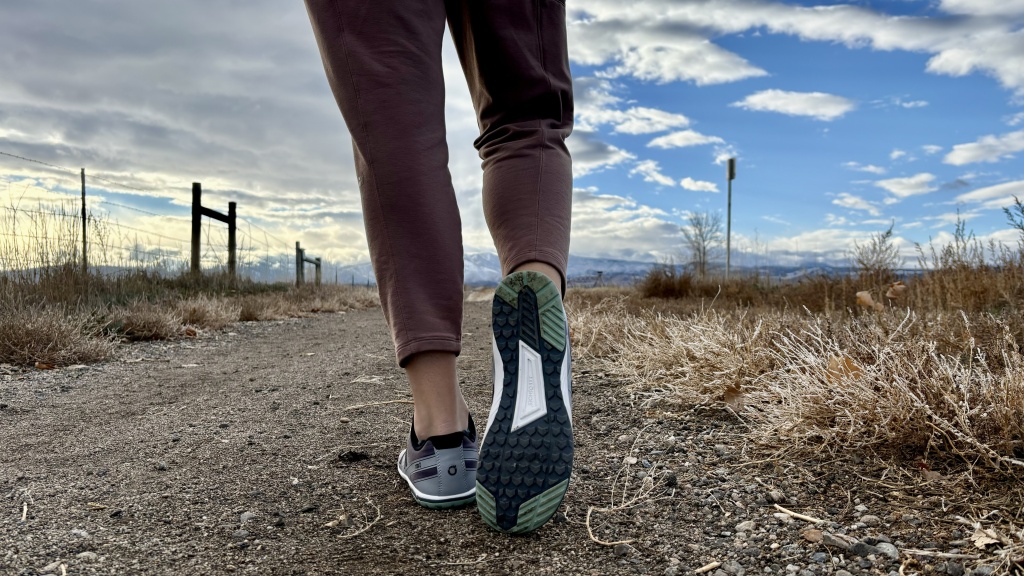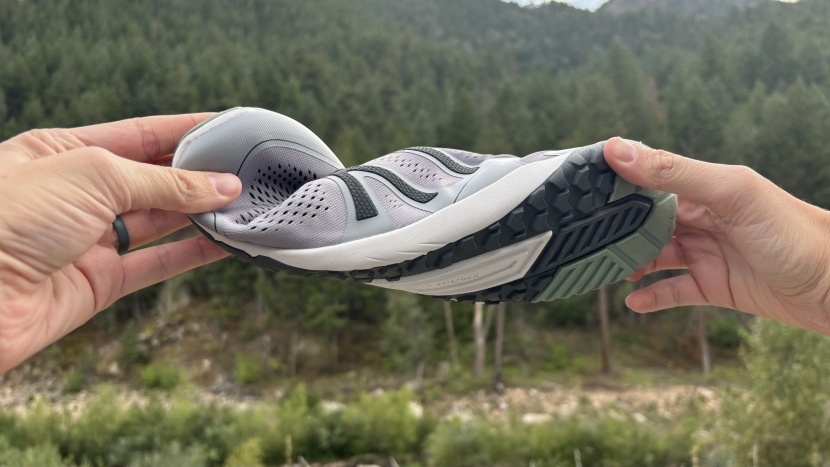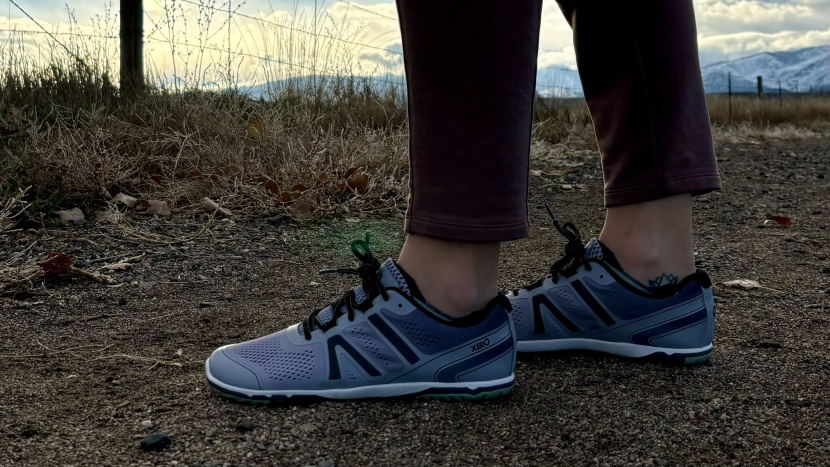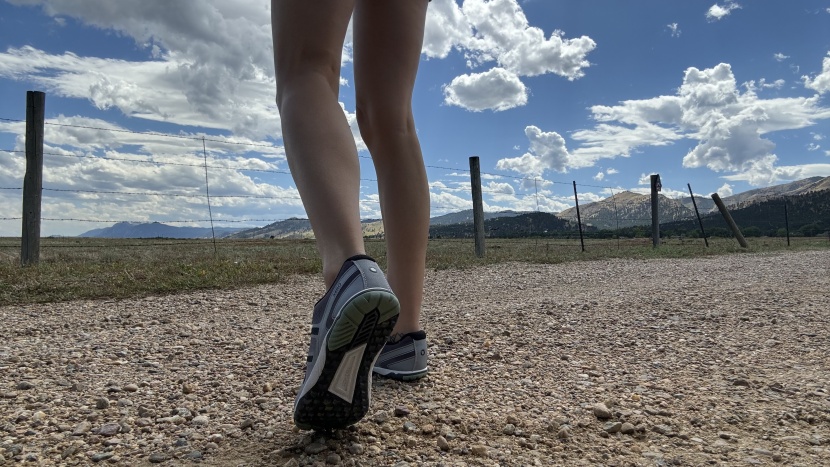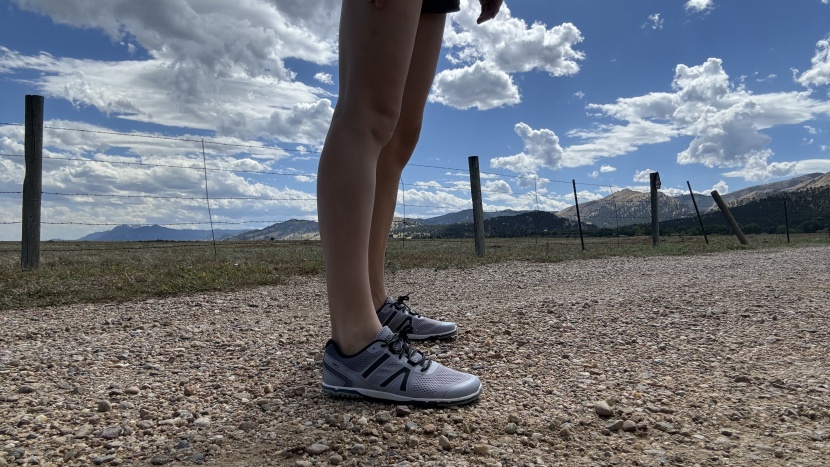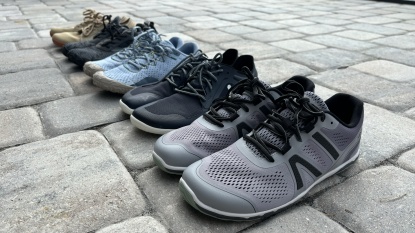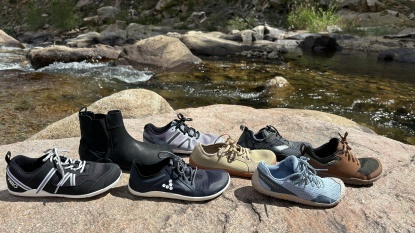Our Verdict
Compare to Similar Products
 This Product
Xero Shoes HFS II - Women's | |||||
|---|---|---|---|---|---|
| Awards | Best Barefoot Running Shoe | Best Overall Women's Barefoot Shoe | Best Everyday Barefoot Shoe | Best Barefoot Shoe on a Budget | |
| Price | $79.95 at Amazon Compare at 2 sellers | $69.96 at Backcountry Compare at 3 sellers | $120 List | $50 List $41.99 at Amazon | $100 List Check Price at Amazon |
Overall Score  |
|||||
| Star Rating | |||||
| Bottom Line | While they are great for more than just running, we appreciate the traction when picking up the pace | This is everything we want in a barefoot shoe, thanks to its flexible, zero drop sole and wide toe box | Athletic shoes aren't always needed for the day-to-day and that is where these stylish and comfortable shoes shine | These are a great place to start if you've never worn barefoot shoes, but they are also a great budget-friendly option for those used to the style | This legendary model is not our favorite due to a lack of versatility, though it is great for water sports |
| Rating Categories | Xero Shoes HFS II -... | Merrell Vapor Glove... | Lems Primal Zen - W... | Whitin Minimalist -... | Vibram FiveFingers... |
| Ground Feedback (30%) | |||||
| Stability (20%) | |||||
| Traction (20%) | |||||
| Weight (15%) | |||||
| Durability (15%) | |||||
| Specifications | Xero Shoes HFS II -... | Merrell Vapor Glove... | Lems Primal Zen - W... | Whitin Minimalist -... | Vibram FiveFingers... |
| Stack Height | 8.5 mm | 6 mm | 9.5 mm | 12 mm | 3.5 mm |
| Measured Weight (per pair, US 9) | 14.2 oz | 10.4 oz | 15.3 oz | 17.1 oz | 11.5 oz |
| Heel to Toe drop (mm) | 0 mm | 0 mm | 0 mm | 0 mm | 0 mm |
| Outsole | FeelTrue rubber | Vibram | LemsRubber | Rubber | Vibram XS Trek |
| Upper Material | Polyester fabric | Mesh, polyester | Microfiber and mesh | Knit | Stretch Polyamide, Polyester |
| Removable Insole | Yes | No | Yes | Yes | No |
| Width Options | Regular | Regular | Regular | Regular | Regular |
| Style | Barefoot road | Barefoot trail | Barefoot road | Barefoot road | Barefoot trail |
Our Analysis and Test Results
The Xero Shoes HFS II has just 8.5 millimeters of stack height and a zero heel-to-toe drop. They feel comfortably barefoot but aren't as jarring when taken for a run. The optional insole allows for a little more cushion, while the lug pattern is great for on and off-road travel.
Ground Feedback
We took these shoes on all sorts of outings, from walking the dog and grocery shopping to trail running and lifting in the gym. We aimed to get an accurate picture of their ground feedback. We wanted to feel just about everything underfoot without any jarring pains from sharp rocks.
These shoes didn't disappoint in terms of ground feedback. We felt nearly everything we were stepping on. As we walked into the grocery store from the parking lot, we could feel the light bumps of the parking lot pavement. Then as we transitioned indoors, the change was noticeable. The shoes have an 8.5-millimeter stack height with a removable insole. We opted to wear the insoles for our runs, which dampened the ground feedback slightly, and for everything else, we ditched them. Without the insoles, we could feel even more, and we felt even more barefoot. The toe box is wide and boxy, so our toes had enough room to splay and naturally respond to the ground.
Stability
Stability is a major plus for barefoot shoes. They are usually low to the ground and wide. This makes it much harder to roll over the side of your foot because there is less play in the shoe, and this lack of play can even help prevent early pronation. However, not all barefoot shoes have the same level of stability. We ensured this was part of our testing to see which shoes were the most stable.
These shoes have a wide toe box that doesn't taper quickly. The gradual shape of the shoe provides decent stability. The HFS are slightly narrower through the midfoot, though. This lost it some points in this metric, as our testers with wide feet felt less stable through this section. We also were caught between a rock and a hard place with this shoe's insoles. While we wanted the light cushion for running on pavement, we also found the shoes uncomfortable with them in. The upper is short and dug into the top of our forefoot, where the laces begin. This pressure was alleviated when we removed the insole, but again, we preferred it for runs. The laces were also short, so even when we let out the slack, we didn't have enough lace to tie up. This caused some stability issues as we spent a lot of time focusing on the hot spot instead of how we were moving.
Traction
As we mentioned, we took these shoes everywhere. We also took them on lots of runs because they were our favorite shoes for running. That meant we took them on and off trail often. While we assessed their ground feedback, we also kept notes on their traction.
These shoes were great on and off mild trials. They have a unique lug pattern that isn't typically seen in barefoot shoes. Most have almost no lugs or something that resembles an inverted lug pattern. These, on the other hand, have an exposed lug pattern that bites into hardpack trails. The lugs have a chevron pattern with sharp edges that grip onto dirt and rocks. We wouldn't want to take them on anything too technical or loose. But, for our trail runs on hardpack trails, they did surprisingly well.
Weight
By the nature of the product, barefoot shoes are typically not heavy. They are constructed on lightweight materials and very little rubber beneath the foot. Many include an insole that can be taken out for even more weight savings. Between shoes, barefoot shoes are often just ounces apart, most in our lineup weighing under a pound.
The Xero HFS II is 14.2 ounces for the pair (US women's size 9). This is less than a pound for both shoes. Though not the lightest in the lineup, they are still reasonably lightweight. This is due to the lightweight polyester fabric and minimal rubber outsole. These shoes also feel reasonably lightweight when wearing them around. They have slightly stiffer materials, which translates to a more noticeable feel. All in all, we were happy with the lightweight feeling of these. Plus, these lightweight materials allowed our feet to breathe during our runs.
Durability
With such light materials used, you might think, “Barefoot shoes can't be as durable, right?” And it's fair to think that. However, that isn't always the case with these shoes. We put all the barefoot shoes in our lineup to the test, wearing them for an extended time to see how well they held up. We took them all over, continuing our day-to-day activities, and keeping a keen eye out for premature wear.
The HFS II did reasonably well in this metric. We wore these a lot and they saw many miles of running. We saw some wear in the toe box where the toe bumper attaches. This lightly started to peel. This isn't enough for us to have a hole in the upper, and it is fairly unnoticeable. However, it is still there. And we imagine with more wear, it will continue to peel back. Again, we want to note that we wore these shoes a ton. So with normal daily wear, this likely won't happen.
Should You Buy the Xero Shoes HFS II?
The Xero Shoes HFS II are worthy of your consideration, especially if you plan on taking them off-road or on some runs. They have a tread pattern that is not usual for barefoot shoes. They have a more low profile fit, though, so those with high arches might find them a little snug through the forefoot. The removable insole fixes this problem, but it is still worth noting.
What Other Barefoot Shoes Should You Consider?
The Merrell Trail Glove 7 is another shoe we loved to run in, especially on the trails. It has a larger stack height at 14 millimeters, so it is better for those new to the barefoot style, or those simply looking for a less jarring impact. Those with wide feet will appreciate the budget-friendly Whitin Minimalist.


